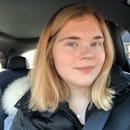Similar to the author of the last Major Spotlight, I had always planned on becoming an English major, although, for me, it is also the major with which I will graduate. I had always enjoyed English classes throughout middle school and high school, and with my love of writing and reading, English seemed like the natural fit. Sometimes I wonder what my college life would have been like on another path—history, art history, psychology—but whenever I think about the breadth and depth of information I have covered and literature I have read, I cannot imagine myself anywhere else. The major offers multiple choices of concentration, from creative writing to theater to American literature, and those like me who cannot decide on one can take a little bit of everything. Within my first year at Barnard, I had taken classes on playwriting, Romantic poetry and post-Civil War American literature, all as part of my major.
Although a wide variety of English courses exist, I think all English majors agree that Barnard and Columbia could improve their English curriculum by allowing for greater student exposure to literature by female authors, queer authors and authors of color. Despite this departmental shortcoming, I have found that many of my professors have worked to include authors representing marginalized groups in their course readings, and have encouraged students to understand the cultural context behind works of literature. In this way, I feel that I have received an education which combines literature, history and anthropology in an attempt to understand other people and society as a whole. My courses have ranged from 50-student lectures to intimate seminars, though all have encouraged frequent participation and dynamic conversation.
While I could fill many pages discussing the English major, I must also recognize my minor—a minor only by name, not workload—of urban teaching through the education department. I recently joined this program, although I recommend that interested students contact someone in the department within their first year. As a program, urban teaching requires over 100 hours of fieldwork in classrooms or other educational settings, full-time student teaching in the fall of senior year, and a multitude of courses, from Educational Foundations to Multicultural Pedagogy. The light at the end of the tunnel is that students who complete the program receive a recommendation for a New York State Certification in teaching for the age group and/or subject of their choice. For me, this program perfectly aligns with my goal of becoming a high school English teacher. I have already begun observing in a Manhattan middle school, taking note of teaching styles and student behavior, all the while engaging in classroom discussions and lesson planning practice at Barnard.
The urban teaching track no doubt requires hard work, excellent time management skills and a large amount of planning and forethought, but for students determined to become teachers, the gain is invaluable. I will now have the freedom to start teaching immediately after graduation, and can choose to earn a masters degree in a wider range of subjects without the pressure of needing Initial Certification. My two courses of study—English and education—have allowed me to directly work toward my career and personal goals, developing critical thinking and text analysis skills, and understanding my own privilege and place in society. While I always feel nervous at the thought of standing in front of my first group of students and teaching my first lesson, I know that the major and minor I have pursued at Barnard will have equipped me for (almost) anything to come.


